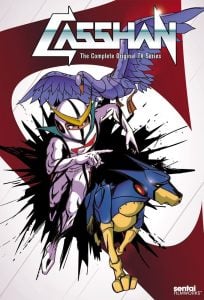 For Throwback Thursday, ScienceFiction.com’s ongoing column dedicated to the great science fiction of the past, I want to take you back to 1973 with a show that will transport you to the future with robot overlords.
For Throwback Thursday, ScienceFiction.com’s ongoing column dedicated to the great science fiction of the past, I want to take you back to 1973 with a show that will transport you to the future with robot overlords.
It’s a favorite trope in science fiction, from ‘Terminator’ to the ‘Matrix‘, but in the 1970s it was still a new concept. Japan was experiencing something of a science fiction heyday starting in the mid-60s with still beloved shows like ‘Ultraman‘, ‘Power Rangers‘, and ‘Galaxy Express 999‘.
‘Casshan’ is also still loved, enjoying anime remakes, and an epic movie that is about 99% green-screened, but still beautiful.
The plot if fairly simple. Automatons were created to serve mankind. However, unlike most robotic overlord stories, their rise to fascist dictatorship did not come from sudden self-awareness through their artificial intelligence. No. One of the early models gets hit by lightning, and that somehow drives it to take over all of the world.
The main character, Tetsuya, feels like he should do something about this since his dad was the one who created these robots, and that jerk failed to think of something to prevent from accidental consciousness from lightning strikes… which let’s be fair, isn’t something an engineer would think of. Usually, lightning fries electronics, not bestow upon it monarchical ambitions.
But anyway, Tetsuya decides the best way to fight these robots is to basically be a robot himself, so he transfers his own consciousness into an android body, and proceeds to kick butt… as long as the sun is out. Yeah, for some reason, his body is solar-powered which makes it hard to charge up in a post-apocalyptic world where it needs to be gray and cloudy just for metaphorical reasons. Who knows how he survived in the 2004 live-action movie where it was perpetually night solely for the ambiance of dystopia.
‘Casshan’ also has something that most robot overlord stories like the ‘Terminator’ don’t have: a robotic dog that transforms into anything you want…. like a jet. So, if you don’t want any part of that, I don’t know what to do with you.
